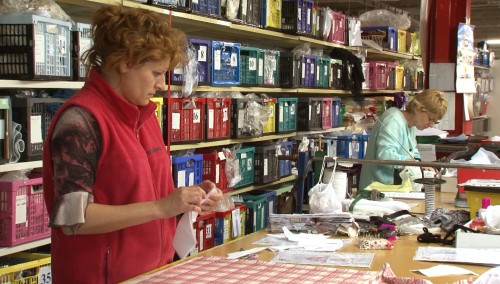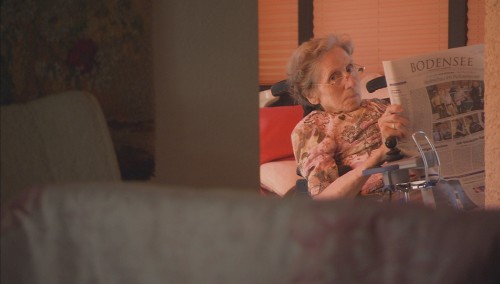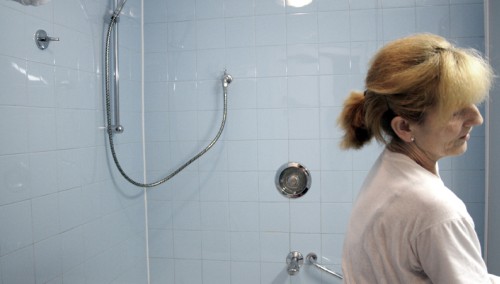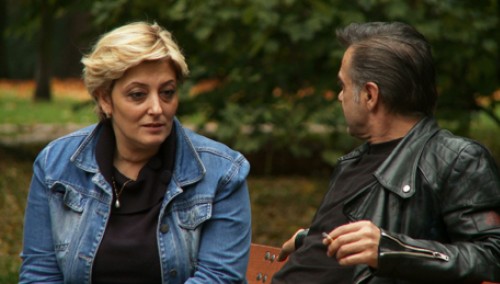Working Worlds 2011
Mostly it is the managers and their record-breaking bonuses that dominate the news from the world of labor and business. There is usually little to be found in the media about the unglamorous settings of the world of low-wage jobs. Perhaps one might hear of a supermarket employee being fired for allegedly cashing in two found deposit return slips for herself.
In the course of research for this year’s Working Worlds series, an astonishing number of films were found which are devoted to just these glamor-free job places. These are additionally unspectacular in that there is neither a major class struggle taking place, nor are scandalous circumstances of exploitation revealed. Instead, they center around the everyday, tedious jobs of women earning a living. They also have a consistent female perspective, because all five films in the series are by women filmmakers, who in turn observe the everyday working worlds of women, telling of factory workers, call center employees and care attendants. Yet these are not at all explicitly feminist films or highly charged with gender politics; in light of the locations, it is almost inevitable that the woman as worker and as the subject of interest is in front of the camera. The way that shifts in the labor market also change gender roles is shown in The Seamstresses by Biliana Garvanlieva. In the patriarchal order of Macedonian society, it seemed to be carved in stone that the man as head of the family is also the breadwinner. Now, with the disappearance of jobs accompanying the downfall of the old political and economic structures, it is primarily the women who find a job in the few remaining sites of production and increasingly defy the power structures.
Clear and seemingly immutable hierarchies are found in Vanja Svilicic’s portrait of a hotel. Am I Happy or What is what the cleaning women ask themselves during a cigarette break. Their monotonous working routine is constantly monitored by the hotel boss, who inspects with eagle eyes to criticize even the tiniest spot.
In some cases the dramaturgy is also determined externally: in Into Our Own Hands, Mariana Ortero follows the employees and workers of a lingerie factory in the French town of Orléans as they attempt to transform their bankruptcy-endangered employer into a cooperative. They hesitantly become conscious of their power and experience how a relatively small effort can perhaps change the whole of things.
In The Housemaid the oppressive situation of the Slovakian woman Martina appears to be an individual fate, but in addition Anna Hoffmann comments on the effects of the glaring lack of trained workers in nursing and geriatric care, thus raising the question of how foreign workers are treated in Western Europe.
In Based Down South, on the other hand, Martina Priessner describes the opposite path of migration. With laconic humor, here the debate is approached from behind, shedding light on the fate of those who have had to leave a country they had experienced as their home for decades. In Turkey they now work in call centers for German companies, futilely attempting to repress their homesickness.





